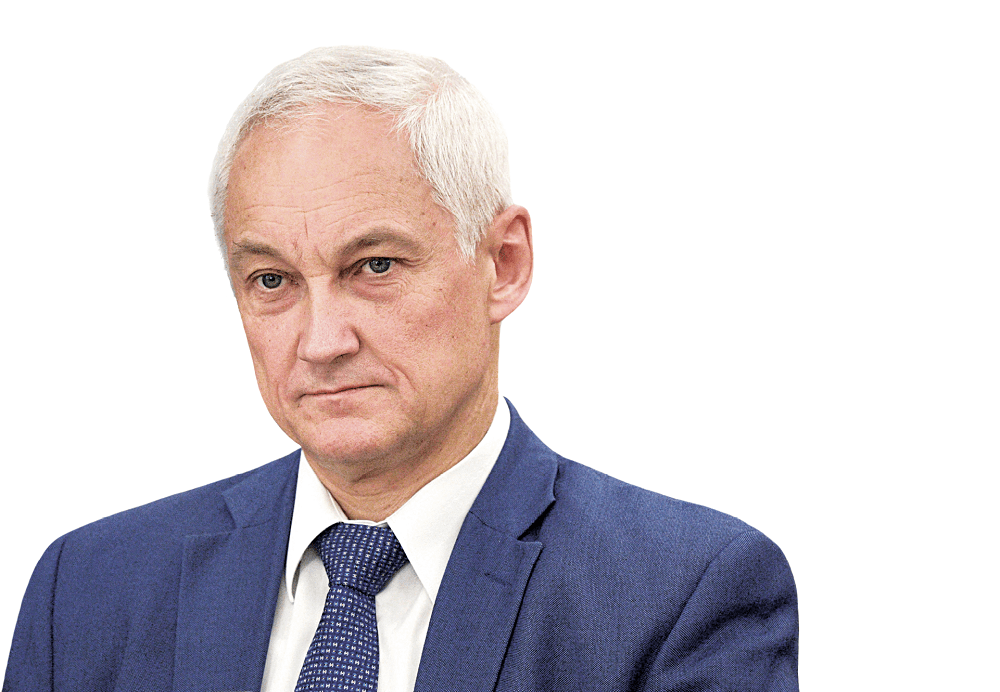The return of the USSR in Russian government
The appointment at the Ministry of Defence in Moscow of the economist Belousov (master of ceremonies of the Orthodox Church) in place of Šojgu seems to indicate a willingness to make the war industry the main engine of increasingly protracted conflicts. While the new energy minister - on whose activities 70% of Russia's GDP depends - is now Sergei Tsivilev, husband of Putin's niece.
Moscow (AsiaNews) - Vladimir Putin's replacement of the defence minister, removing the popular and loyal Sergei Šojgu, who had held the post for 12 years, and entrusting it to the economist Andrej Belousov, deputy prime minister for the economy in Mikhail Mišustin's previous government, has caused reactions around the world. The surprise is not so much the different competence of the successor, as Šojgu was not actually a military man either, having not even done his military service.
According to Kremlin spokesman Dmitry Peskov, the choice is due to the necessary 'innovation in the management of institutions', in view of the great progress Russia intends to make according to the plans of the eternal president's new mandate. The move towards the future, however, seems to turn much more towards the past, giving Putin's Russia an increasingly similar character to Brezhnev's Soviet Union, if not Stalin's.
Šojgu reminded everyone of the Yeltsin period, where he had become a much-loved figure for his work as minister of civil defence, a figure who symbolised a different focus of the state on regions and territories, no longer seen as protected and controlled areas from above, but as an expression of the will of local groups and ethnicities to build their own autonomy with the support of the central authorities. In his native Mongolian republic of Tuva in Siberia, there is a true cult of Šojgu's personality, complete with a 'Šojgu Museum', considered the heir to the epic Tuvinian leader Subedej.
The appointment of Belousov, according to most observers, instead indicates a desire to make the war industry the main engine of the economy, projecting itself into a period of increasingly prolonged conflicts, shifting from the supply of everything needed for the present to the production of everything needed for future wars. This takes Russia back to the economy of the 'cold war', as Peskov himself admitted when commenting on the nomination and explaining that 'by virtue of the current geopolitical conditions, we are getting closer to the situation of the mid-1980s, when the share of the state budget for military expenditure was 7.4%'. In fact, these expenditures already exceed 7.6%, more reminiscent of the Stalinist period than the Great Patriotic War.
The 65-year-old Andrej Belousov is certainly himself a Putin loyalist, also known for his ceremonial functions in the Orthodox Church liturgies, but most of all he is remembered as the son of the great Soviet economist Rem Belousov, creator of the scientific school of 'price regulation' that characterised the 'Kosygin reform' of 1965, considered one of the 'progressive' directives of Soviet policy. At the time, it was intended to give more freedom of action to state-owned enterprises, today entrepreneurship is being bent to the service of war: a backward movement that meets with the progress of the past. The reform projected the USSR into the 'golden' eighth five-year plan, with a great growth of the Soviet economy, while Putin's fifth (sixth) term is meant to indicate a different exaltation of the Russian economy, based on its inherent strength and the division of the world into friends and foes of the West, supported by the permanent state of war.
The radiant neo-Soviet future of Putin's Russia is also underlined by another typical feature of the Brezhnev period, the 'cadre policy' of not exposing officials guilty of corruption or other serious violations to public ridicule, a rule that seems to have been applied to Šojgu himself after the arrest of his deputy minister Timur Ivanov on 23 April. The former Defence Minister was 'promoted' to Secretary of the Security Council, apparently a very prestigious role, in reality only a retirement 'under guard': his predecessor Nikolaj Patrušev was moved to 'mere advisor' to the presidential administration, effectively emptying the Council of all prerogatives.
However, Patrušev's son Dmitry has been elevated to deputy prime minister, and the lockout of family members is another feature of the new government of absolute Putin loyalty, also confirmed by the appointment of the new energy minister Sergey Tsivilev, husband of Putin's niece. Seventy per cent of Russia's GDP depends on the activities under this ministry.
27/12/2025 09:25







.png)










